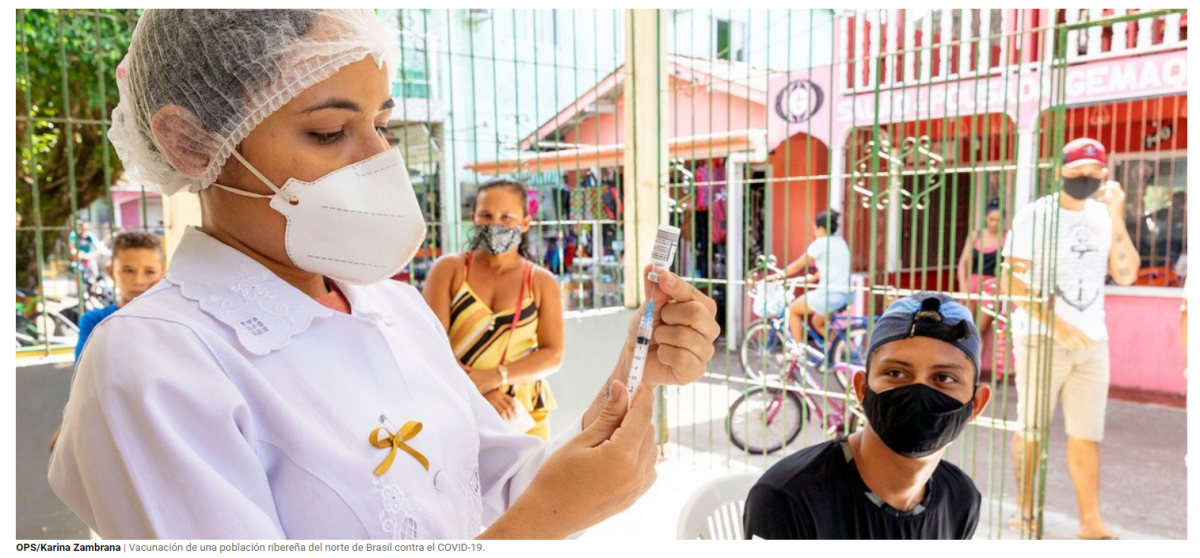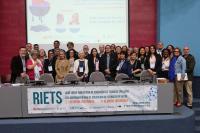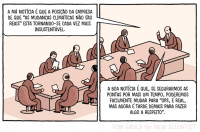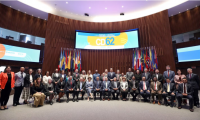The World Health Organization asks not to let our guard down against COVID-19

The director general of the World Health Organization (WHO) warned this Wednesday in a press conference that, although COVID-19 is no longer a global health emergency, the virus continues to circulate, change and cause the death of people around the world. the world.
Tedros Adhanom Ghebreyesus specified that various sources alerted the organization about the increase in transmission during the month of December, driven by gatherings during the festive period, and by the JN.1 variant, which is now the most reported worldwide. .
Thus, in December, almost 10,000 deaths from COVID-19 were reported to the WHO , and there was a 42% increase in hospitalizations and a 62% increase in ICU admissions , compared to November.
Dr. Tedros clarified that these trends are based on data from fewer than 50 countries, mostly in Europe and America, but he believes that there are also increases in other places, although this is not being reported.
Continue with precautions
The director general urged governments and the general public to continue taking precautions against COVID-19, and recalled some of the most important measures at the individual level, such as getting vaccinated, getting tested, wearing masks and ensuring that closed spaces crowded rooms are well ventilated.
“Although 10,000 deaths per month is much less than the peak of the pandemic, this number of preventable deaths is not acceptable. “We continue to call on governments to maintain surveillance and sequencing, and to ensure their populations' access to affordable and reliable tests, treatments and vaccines ,” he stated.
In Gaza, supplies cannot be delivered
Previously, and after 100 days of conflict, Dr. Tedros referred to the hostilities in Gaza , where only 15 hospitals are “partially” functioning.
The director warned that the lack of clean water and sanitation and overcrowded conditions are creating “the ideal environment for the spread of disease.”
In addition, heavy shelling, movement restrictions, fuel shortages and communications disruptions make it impossible for WHO and its partners to deliver humanitarian aid.
In this sense, Dr. Tedros explained that the organization has had to cancel six planned missions to the north of the enclave since December 26 because their requests were rejected and no guarantees of safe passage were given.
“We ask Israel to approve requests from WHO and other partners to deliver humanitarian aid. We continue to call for a ceasefire, but even without one corridors can be established to allow the safe passage of humanitarian aid and workers. We continue to call for the release of the remaining hostages. And we continue to call on all parties to protect healthcare , in accordance with their obligations under international humanitarian law,” he concluded.
Provide life support to 90 million people
Dr. Tedros listed other emergencies that the organization is responding to in addition to Gaza, such as those in Ukraine, Ethiopia and Sudan.
In this context, he reported that next Monday, the agency will publish the Health Emergency Appeal for 2024 , which indicates how much they need to protect the health of the most vulnerable people in 41 emergencies around the world . By 2024, WHO aims to provide life-saving support to almost 90 million people.
“Next year will be a test for humanity; a test of whether we give in to division, suspicion and narrow nationalism, or whether we are capable of rising above our differences and seeking the common good,” he noted.



